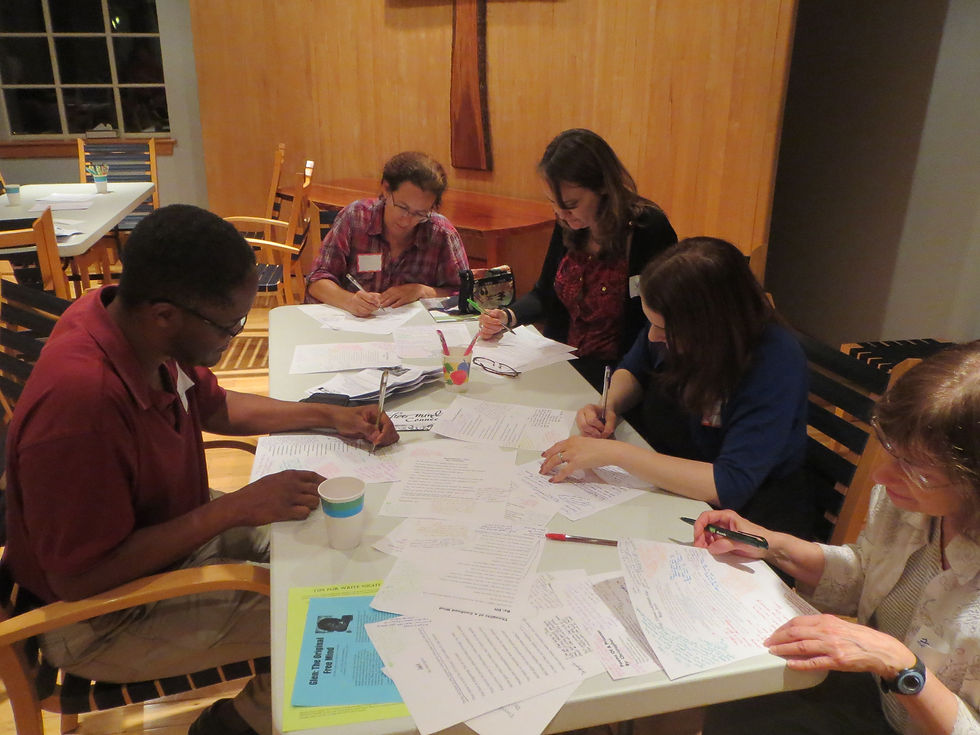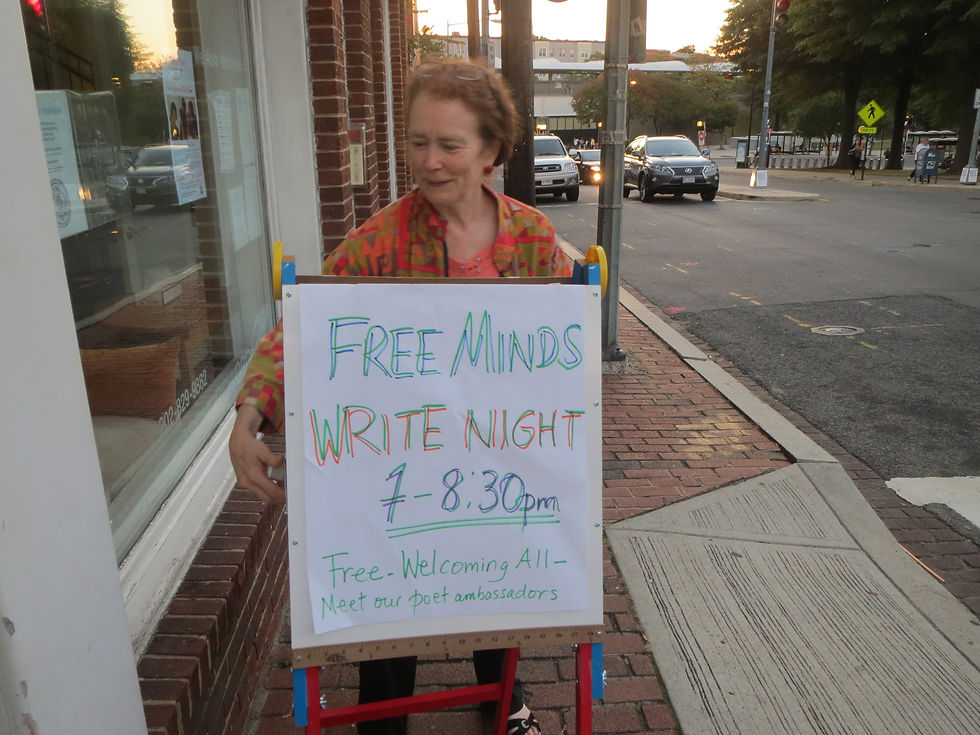Finding Common Ground
- siobhanntighe2002
- Sep 21, 2015
- 3 min read

If a young armed robber, recently released from prison, was willing to meet you, would you meet him? That’s what happens in Washington DC. Citizens are meeting up with ex-offenders and more than that, it’s a feedback session.
On Wednesday night I travelled up the red line on the Washington metro to a place called Takoma. In a church, which looks like it used to be a shop complete with a display window, four ex-offenders mingled with a crowd of about 60.

These men were members of a writing and literacy group called Free Minds Book Club. It helps existing prisoners as well as those who are now released by encouraging them to read, express themselves through creative writing and improve their life when they get out. To start things off the four men stood at the front of the room and read out some poems and then it was over to the community. On their tables were poems written by prisoners and their job was to give feedback on the writing and put their comments alongside the texts. This would then go back to the prisoners who like it because they feel someone is taking their work seriously and finds some merit in it.

One of the most important things to acknowledge from this event is that it’s self-selecting. The kind of person who gives up an evening to link up with a group deemed risky is keen on social justice issues, will be liberally minded, could be motivated by a religious faith and is more likely to be well educated and economically secure. This event is not attracting the “lock them up and throw away the key” crowd. But apparently the numbers get larger with each event as word spreads.
One of the main reasons I came to Washington was to learn a little more about this concept of the “returning citizen” because to me, this way to describe an ex-offender implies a two-way relationship. The offender has to work at making their re-entry successful whilst the community must adapt and include them. This “Write Night” seemed to put that in action.
My Winston Churchill travels are really about radio, not prisoner literacy. But there's something to learn from this. I’m looking at radio programmes made by offenders and ex-offenders in other countries which are heard on the public airwaves. For radio to be at its most successful and impactful it also needs to have a two-way relationship. It’s all very well making a radio programme and broadcasting it but it's at its best if it has an audience. It needs a group of people who want to tune in or engage with it, in a similar way to "Write Night.”
“Crime and how we react to it should be everyone’s concern.” That’s according to Clare McGregor in her recently published book, Coaching Behind Bars, which is about her experience of providing coaching to women prisoners near Manchester. She says, “The majority of offenders have grown up in the same communities as their victims and the cost of their offending, both human and financial, are borne by those communities … most offenders return to the place from which they were banished.”
I agree with Clare, and so it seems logical and useful to me to have some kind of forum where the two groups come together to find common ground, to increase understanding and reduce stigma and fear. It’s happening at the Write Night in Washington DC. Could a weekly, professionally-produced, balanced, impartial magazine-style speech radio programme on the British public airwaves do something similar?

Comments